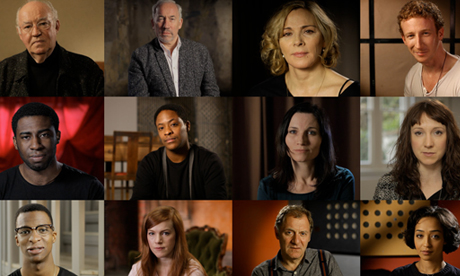
UK-based publisher Touch Press has sold more than half a million copies of its iOS book-apps, with the vast majority of them being bought outside the UK.
Chief executive Max Whitby revealed the milestone at the Mobile Culture conference earlier this week in London. "90% of Touch Press sales – and we're at 500,000 apps now – are outside the UK," said Whitby.
"For 25 people based in London without an international marketing department, that's an extraordinary number. And a real eye-opener for any cultural organisation thinking about how to reach the world."
Whitby was addressing an audience including plenty of representatives of libraries and museums – hence the reference to cultural organisations.
He also revealed that Touch Press has now sold more than 290,000 copies of its first iOS app, The Elements, which was originally released for iPad in March 2010.
In December 2011, Whitby told The Guardian that The Elements was past the 250,000 sales mark, meaning that more than two years after its release, the app has still been selling around 5,700 copies a month – not bad considering that until mid-June it cost £9.99 (it's now £4.99).
At Mobile Culture, Whitby was presenting with book publisher Faber's head of digital Henry Volans. The two companies have worked together on three apps: Solar System, The Waste Land and most recently on The Sonnets by William Shakespeare.
The app includes the full text of all 154 sonnets, notes from Arden Shakespeare and poet Don Paterson, and filmed readings by actors including Sir Patrick Stewart, Stephen Fry, Dominic West, Fiona Shaw and David Tennant.
Volans talked about the benefits of this long-term relationship. "It's rare to find partnerships that are ongoing and survive beyond one project," he said, before noting that The Sonnets app involved two more partners: Bloomsbury subsidiary Arden and TV production company Illuminations.
"It's worked extremely well, because all of us in the partnership have been good at knowing when not to seek too much control," said Volans.
"The total budget was around £120k, which includes investment, time, IP and skills, contributed in varying quantities by the four partners, and which will be reflected in the share of revenues back."
One notable aspect of The Sonnets is its social features, with users able to share any sonnet with friends through email, Facebook or Twitter.
What is shared is a link to a webpage with the full performance video and text for the individual sonnet, rather than simply a marketing message telling the recipient to buy the app. Here's an example.
"We had quite a few arguments about whether we should give away these precious recordings – crown jewels that we spent a lot of money recording," said Whitby. "But we felt giving the content away was a very good way to get word out about the project, and we hope it will result in more sales."
Meanwhile, Volans said he's been particularly pleased at the way The Sonnets has attracted press coverage from some unusual places, well beyond Faber's stomping ground of literary critics.
"The review I'm proudest of is the review on technology blog The Verge, which positions this at the heart of technology writing," he said. "It's hard to get people writing about tech to sully themselves writing about content, but there should be more of this. It's good."

